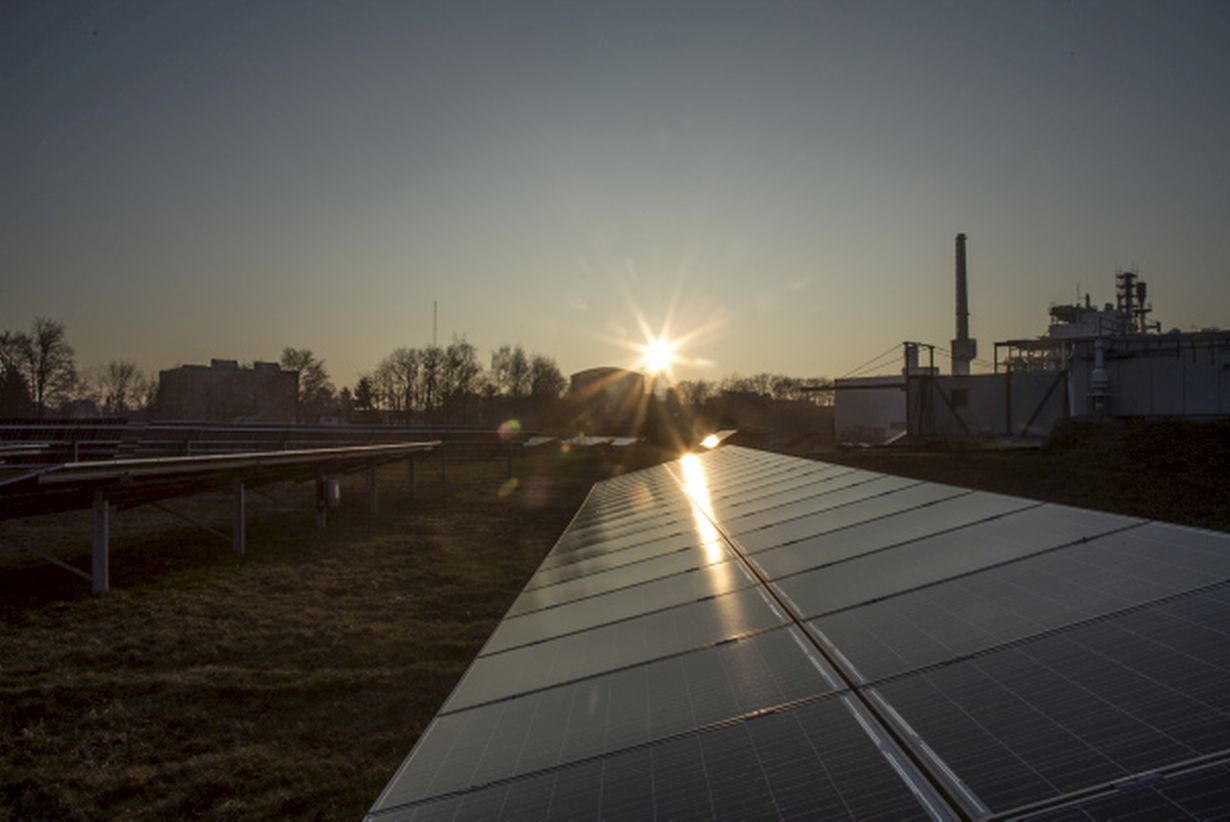One of the success factors of the energy turnaround is how well renewable energies are integrated into the overall system. This affects network control, power plant planning, and electricity tariffs. Predictions as to how much energy from wind, the sun, or water will be available at any given time in the future, depend on a huge amount of correlated data. Professor Steffen Rebennack from KIT uses applied mathematics in order to optimize data-based decisions for and within future energy systems.
The energy yield from regenerative sources such as wind power, photovoltaics, or hydropower is hardly predictable, even within short cycles. Clouds casting a shadow on a PV facility can have an immediate influence, as well as heavy rain that changes the inflow into a water reservoir. The challenge is to control the generation of energy from various sources so that a stable supply of energy is ensured and the operators have a baseline for economic planning.
“These uncertainties play an important role for operational or strategic decisions expected from stakeholders in the energy industry, and therefore need to be taken in account for optimum decision-making,” explains Rebennack, who is the new holder of the chair for Stochastic Optimization at the Institute of Operations Research (IOR) of KIT. This affects all scales, from the 24-hour electricity market to decisions on long-term investments. The optimization specialist at KIT wants to advance a new approach in fundamental research for optimizing decisions in the energy sector despite many uncertain parameters.
Sample scenario: A power plant operator needs to find out which technology to go for in the long run. The decision is based on all hourly spot market prices from a period of 20 years. This results in a total of up to 30 million individual decisions that were all made against the backdrop of different boundary conditions. To calculate such a huge data volume, Rebennack adapts the “Benders decomposition” stochastic optimization model for energy system technology.
The model is named after the Dutch mathematician Jacques Benders. Special algorithms decompose an overall set of individual decisions into single questions and their different boundary conditions and then analyze and recompose them. This procedure is repeated in recurring loops, so-called iterations, until the data has been evaluated as realistically as possible and describe reliable scenarios.
“We use a classical solution procedure from applied mathematics here,” Rebennack emphasizes. A successful test of his approach involved data from ERCOT (Electric Reliability Council of Texas), the Texan energy utility company. This is a future-oriented approach not only for the power industry, but also for the financial sector, for production planning and healthcare.
After studying mathematics at the University of Heidelberg, Steffen Rebennack earned his doctorate at the University of Florida in 2010 and then conducted teaching and research in the USA at the Colorado School of Mines as Assistant Professor (2010-2015) and Associate Professor (2015-2017). He was appointed chair professor for Stochastic Optimization at the Institute of Operations Research (IOR) of KIT at the beginning of the summer semester 2017. Funds from the returnee program of German Scholar Organization (GSO) and the Carl-Zeiss Foundation (CZS) go to him personally and to KIT.
More about the KIT Energy Center: http://www.energie.kit.edu
In close partnership with society, KIT develops solutions for urgent challenges – from climate change, energy transition and sustainable use of natural resources to artificial intelligence, sovereignty and an aging population. As The University in the Helmholtz Association, KIT unites scientific excellence from insight to application-driven research under one roof – and is thus in a unique position to drive this transformation. As a University of Excellence, KIT offers its more than 10,000 employees and 22,800 students outstanding opportunities to shape a sustainable and resilient future. KIT – Science for Impact.

